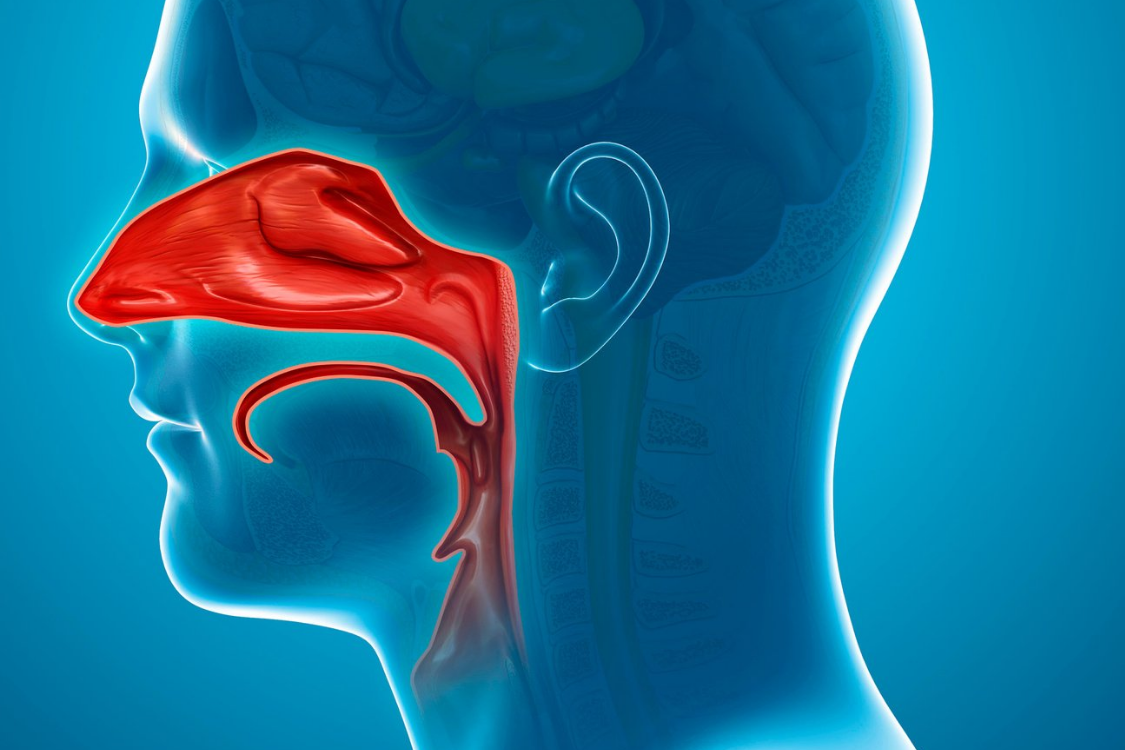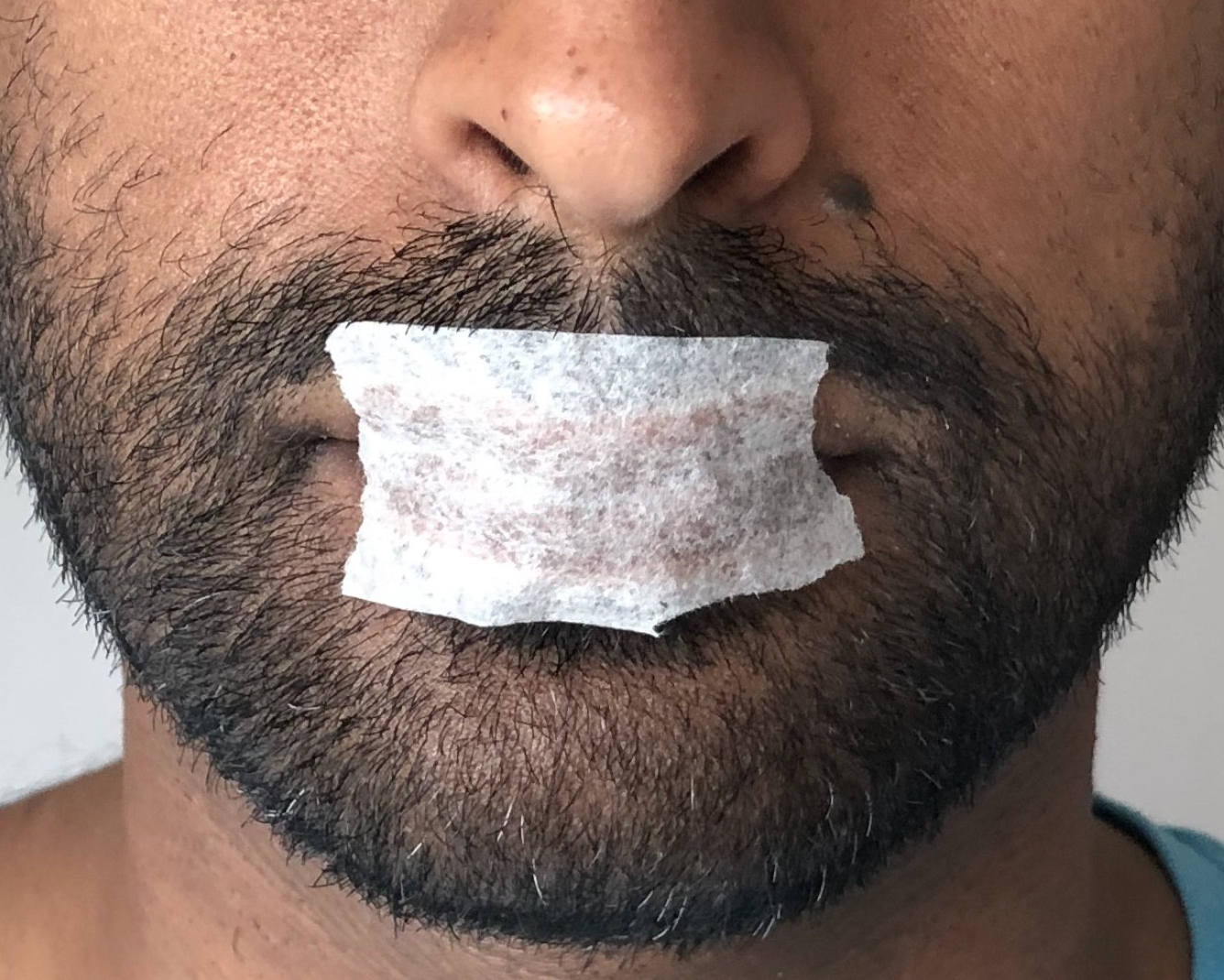Sleep is essential for your body and mind to function well on all markers. Not only do we need enough hours of it each night, we also need those to be hours of good quality sleep – deep and undisturbed. Sleep hygiene is essential – no devices in the room that might awaken you, limiting how much you drink in the hours before bed so you aren’t woken by a full bladder, and making sure you are not disturbed by the noises you or your bed-partner make during sleep – namely, snoring.
An estimated 45 percent of adults snore occasionally, while 25 percent snore regularly.
Snoring occurs when a large volume of air passes through a narrow space – the nose, mouth or throat – causing noisy turbulence. This happens for one of two reasons: either the snorer is breathing too hard during sleep, or part or all of the upper airway (the nose, mouth and throat) is too narrow.

Traditional remedies for snoring deal with the latter cause – nasal dilators or surgical procedures are generally designed to create more space in the upper airways for less restricted airflow. These can indeed make breathing more comfortable but if heavy breathing persists during sleep, the quality of rest you get will be limited and snoring can continue.
A less invasive first step to eradicate snoring is to correct your breathing.
Over 80% of people have some form of breathing dysfunction….
Most of us are breathing too hard, too fast and too much in the upper chest. Optimal breathing should be light, slow, and diaphragmatic, which means that your belly expands forwards as you breathe in and returns backwards as you breathe out whilst your chest and shoulders remain quite still. Our breathing should be soft and soundless, even when we are asleep.
We cannot consciously monitor our breathing when we are in the subconscious states of sleep so we need to make the changes during our waking hours, with breathing exercises that retrain your default breathing style.
Here’s what to do:
- Make sure you nose breathe at all times. If you ever catch yourself breathing through your mouth during the day, correct yourself by closing your mouth and feeling your breath move in and out of your nose. Watch out for mouth breathing during exercise or wearing a mask – two occasions where we are more likely to mouth breathe.
TIP: The correct resting position for your tongue is up against the roof of your mouth, softly spreading between the two rows of your upper teeth - this position helps expand your nasal airways and facilitates nose breathing over mouth breathing.
- Breathe low and breathe slow. Encourage yourself away from the chest breathing that creates a respiration urgency that triggers your mouth to open and snoring, by consciously belly breathing throughout the day.
TIP: Imagine a balloon inside your body behind your navel – inflate the balloon and your belly for a 5 second inhale, and deflate the balloon and your body for a 5 second exhale.
- Breathe lightly. Good breathing is soundless and barely visible to the eye, so as you breathe slowly, also breathe in less air than you think you need, creating a sense of air hunger. Maintaining this for a few minutes helps reset heavy breathing patterns to a subtle, more efficient breathing rhythm.
TIP: Imagine 1 litre of air passes in and out of your body in a normal breath. As you breathe slowly at a 5 second count, try to breathe in and out just half that amount, continuing like this for a few minutes.
Doing these three steps each day as your breathing practice will start to shift your default breathing pattern to be more functional both during the day and night. Not only will you feel more balanced and energetic, you will also sleep better in general and lessen the magnitude of your snoring. The more you practice, the more improvement you will make and you can eventually eradicate your snoring altogether.
For those who want a quicker fix, in addition to the steps above, tape your mouth at night to ensure it stays closed. This will force your breath through your nasal passages, causing them to open and expand, leading to easier nose breathing and less mouth breathing going forward. Buy basic micro tape from your drugstore and apply a small strip before bed. You can also use it during the day at times you notice yourself slipping into mouth breathing habits.

Share this information with anyone you know who suffers with snoring, fatigue and sleep issues in general. Everyone deserves a great sleep.
For beautiful sleep-inducing guided breathing practices, go to The Breath Method app and explore the SLEEP collection. And for further support to optimise your breathing, schedule an introductory session with our respiratory therapists at [email protected].


